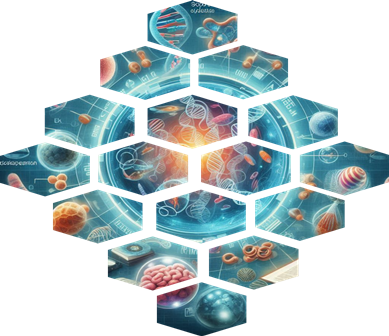Microbial communities, the intricate networks of microorganisms that inhabit every corner of our planet, are the unsung heroes of Earth’s ecosystems. These microscopic entities play a pivotal role in everything from nutrient cycling to climate regulation, and yet, their complex interactions and functions remain largely enigmatic. The quest to unravel the secrets of these microbial maestros is not just a scientific endeavour; it’s a journey that could redefine our understanding of life and its sustainability on Earth and beyond. The Hidden World of Microbes Microbes are everywhere – in the soil beneath our feet, in the water we drink, and even inside our own bodies. They are so numerous that they outnumber the stars in the Milky Way. Despite their ubiquity, these microorganisms work discreetly, orchestrating the fundamental processes that make life possible. Microbial communities are diverse, with each species playing a specific role. Some are decomposers, breaking down dead matter; others are producers, creating energy through photosynthesis or chemosynthesis; and some are even predators, keeping the microbial ecosystem in balance. The Scientific Endeavor Scientists are employing cutting-edge technologies to study these communities. Metagenomics, for example, allows researchers to analyze the genetic material from environmental samples, providing insights into the composition and capabilities of microbial communities without the need for culturing them in a lab. This technology has revealed the existence of countless new species and has begun to map out the intricate web of interactions that define microbial ecosystems. The Implications of Microbial Mastery Understanding microbial communities has profound implications. In agriculture, harnessing the power of beneficial microbes can lead to more sustainable farming practices, reducing the need for chemical fertilizers and pesticides. In medicine, the study of the human microbiome is revealing how our health is intimately tied to the microbes that live within us, opening new avenues for treatment and prevention of diseases. In environmental conservation, microbes offer solutions for bioremediation, using their natural abilities to clean up polluted environments. Recent Discoveries in the World of Microbial Communities The realm of microbial communities is ever-evolving, with new discoveries constantly reshaping our understanding of these complex ecosystems. Here are some of the most recent and groundbreaking findings in the field: A New Mode of Locomotion One of the most intriguing discoveries comes from a pond rich in sphagnum moss in southern Germany, where researchers have identified a new genus of single-celled organisms, Idionectes, which exhibits a previously unknown form of locomotion. These protists, resembling “tiny flying saucers,” move in a toroidal or “doughnut” swimming pattern, a method never before observed in living beings. Geological Activity’s Impact on Microbial Communities A study conducted nearly 5,000 feet below ground has revealed that geological activity can rapidly transform deep subsurface microbial communities. Contrary to the long-held belief that environmental conditions are the primary influencers of microbial composition, this research indicates that geological movements can induce swift changes, offering new insights into the adaptability and resilience of these microorganisms. Advances in Metagenomic Approaches The advent of next-generation sequencing and metagenomics analysis has significantly expanded our knowledge of microbial communities. These advanced techniques allow for the identification of novel and uncultivable microorganisms based on their genetic information, providing a more comprehensive understanding of the microbial diversity present in various environments. Dynamics of Microbial Communities Researchers at the Max Planck Institute for Evolutionary Biology have characterized a new dynamical regime of microbial communities. This discovery has been used to explain empirical patterns of marine plankton, shedding light on the intricate dynamics that govern these microscopic populations. These discoveries not only enhance our comprehension of microbial communities but also underscore the importance of continued research in this field. As we delve deeper into the microbial world, we uncover the vast potential these organisms hold for advancements in health, agriculture, environmental sustainability, and beyond. The future of microbial research promises to bring even more exciting revelations, as scientists employ innovative technologies and methodologies to further unravel the mysteries of these microbe masters. The Challenges Ahead Despite the progress, the complexity of microbial communities presents significant challenges. Each microbe interacts with its environment and neighbors in a myriad of ways, and these interactions can change based on countless variables. The sheer scale of diversity within these communities means that we have only scratched the surface of understanding. Moreover, the sensitivity of microbes to their environment means that changes in climate and human activity can have unpredictable impacts on these crucial ecosystems. The Future of Microbial Research The future of microbial research is bright, with new technologies and approaches emerging at a rapid pace. Artificial intelligence and machine learning are being harnessed to predict the behavior of microbial communities and to design new experiments that can probe their mysteries more deeply. As we continue to explore this microscopic frontier, we may find that the smallest organisms on our planet hold the keys to some of our biggest challenges. In conclusion, the microbial masters of our planet are a testament to the complexity and resilience of life. As we unlock the secrets of microbial communities, we are finding new allies in our quest for a sustainable future. The journey is long, and the challenges are many, but the rewards promise to be transformative, for science and for society. The microbe masters are waiting – it’s time to listen to what they have to say.






